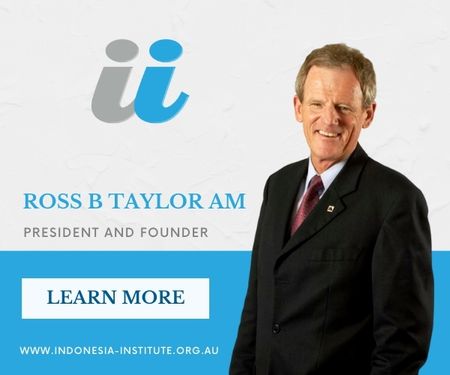Author: Made Supriatma, ISEAS–Yusof Ishak Institute
Never before has the Indonesian National Police (Polri) played such an important role in Indonesian politics and government. During the 32 years of the New Order government, the police were a branch of the Indonesian National Armed Forces, though in practice were only a minor partner with the army taking the leading role in domestic security.
But the army’s domestic security and political roles have been eclipsed by Polri since the fall of the Suharto regime. President Joko ‘Jokowi’ Widodo has been building a uniquely close relationship with the police because he lacks strong ties with the military. His only access to military elites is through his ex-military confidants, especially former general Luhut Panjaitan, one of his most senior ministers.
Jokowi’s embrace has strengthened Polri’s political position. The police now act as both a security and political force, actively building legal cases against government opponents, silencing critics and persecuting those who threaten the president’s power.
Jokowi was initially slow to embrace the police as a political ally. In his early months in office, Jokowi nominated Inspector General Budi Gunawan — a close confidant of Megawati Sukarnoputri, chairwoman of Jokowi’s Indonesian Democratic Party of Struggle (PDI-P) — to lead Polri. The nomination sparked a political crisis after the Corruption Eradication Commission (KPK) named Gunawan a suspect in a corruption case.
In July 2016, Jokowi appointed General Tito Karnavian as police chief. By appointing the relatively young Karnavian, Jokowi passed over several generations of senior police officials who already had well-established relationships with Jakarta’s political elites. Karnavian proved to be a reliable ally of the president, overseeing high-profile cases against government critics like those against Robertus Robet, a human rights activist who sang a song lampooning the military in a demonstration, and Dandhy Laksono, a dissident documentary filmmaker.
Police assistance was visible in the case against Muhammad Rizieq Shihab, a Muslim cleric and vocal critic of Jokowi. Rizieq was the man behind the 2016 demonstrations aimed at toppling former Jakarta governor Basuki ‘Ahok’ Tjahaja Purnama on the grounds that he had blasphemed against Islam. Rizieq was eventually charged under the Law on Information and Electronic Transaction, which led him to self-exile in Saudi Arabia. The extensive use of this dubious law has fuelled claims that the Jokowi administration has turned to authoritarianism.
Police support was also apparent during Jokowi’s 2019 re-election bid. While the police did not openly campaign for Jokowi, their support was a part of his electoral success in regional areas. Politicians in South Sumatra have openly admitted to me that the police helped stabilise falling rubber prices, with some businessmen in Lampung recalling that they were asked by police officers to fund pro-Jokowi volunteer groups.
Jokowi has given political concessions to the police in his second term, often sidelining the army in the process. Police elites were appointed to several important and strategic positions previously held by military generals and customarily considered the army’s domain. The human rights NGO Kontras notes that 30 retired or active police generals hold strategic positions in the Jokowi administration, including in ministries, government agencies and ambassadorships. The Indonesian Ombudsman also reported that 25 police officers sit on the boards of state-owned companies and their subsidiaries.
Retired or serving police officers now lead the State Intelligence Agency (BIN), the National Narcotics Agency (BNN), the State Logistics Agency (BULOG), and the National Counterterrorism Agency (BNPT). Most controversially of all, former police Commissioner General Firli Bahuri is the current chairman of the KPK, which has long been a thorn in the side of the police, indicting several police generals.
The police force is also benefiting from an increased budget and extra personnel. State spending on the police force reached Rp107 trillion (US$7 billion) in 2020, up from Rp94.3 trillion (US$6.3 billion) the previous year. In 2020, the number of police personnel will increase by 27,012 up 5.7per cent from 2018. The increase is significant: from 2016–18 the police only added 1,898 personnel. Today, the police is now roughly the same size as the army.
The police force is becoming increasingly important for Jokowi. As Polri dips its hands deeper into politics to secure the government, it also reaps more rewards. It is no exaggeration to say that the police are increasingly playing a dual function, as both a security force and a political instrument.
FOR ORIGINAL SOURCE OF ARTICLE CLICK HERE
Made Supriatma is a visiting fellow at the ISEAS–Yusof Ishak institute, Singapore.





